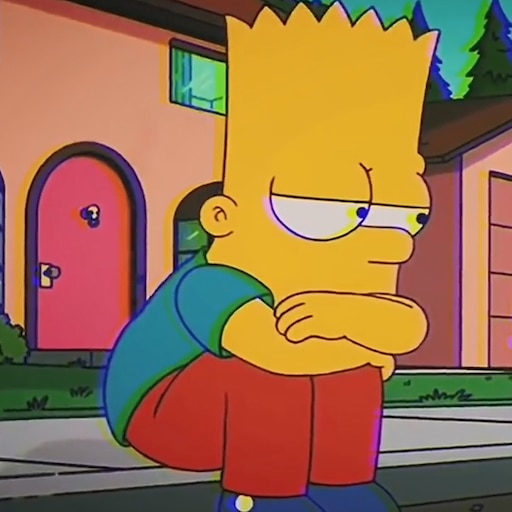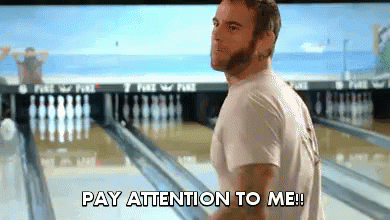Depression: Real Or Fake?
Hey readers, thanks for joining me and welcome back for another post.
Today I wanted to talk about something that I've taken a lot of interest in recently, which is also known as one of the most common silent diseases. That's right, depression. Fair warning, this post might seem kind of mundane to some of y'all and you may not like what I have to say, so bear with me. As many of you may know, September was suicide awareness month, and I have friends who are silently fighting strongly themselves, so I thought it might be good to go more in-depth into it.
Guys, depression isn't something that you should take lightly. I know you've probably heard it a million times before, but I'm serious. A lot of us can casually go around saying "Oh man I feel so depressed today" without hesitation, but being Depressed - with a capital D - is a whole other spectrum. Depressed is not just feeling sad, it's more than that. I'm sure we've all had our off days, where we feel like crying for the entire day or a couple days or maybe even a week. Sometimes there's a reason for it, sometimes there isn't, and we let it all out and then one day we wake up and feel better and we move on with our day. Depression isn't like that. When you're depressed, it's not just your mind that can be affected, but your whole body. Solomon recalls days where he physically couldn't get out of bed to take a shower because of some underlying fear, although he couldn't explain why. In fact, he could barely roll over without being terrified. It wasn't him who was in control; it was his irrationalities. It wasn't just about losing interest; it was about being terrified of life itself.
That being said, not everyone's response to depression is the same. Sometimes it can creep up on you after months of stress, and other times it can be situational, like parents being too hard on you or feeling isolated in class. And then sometimes there's no explanation for why you feel the way you feel at all, even if you do have a healthy lifestyle and plenty of friends and family. That's the thing about depression - it's like a shark in the ocean, ready to pull you deep into the water and take a part of you with it.
While some people may have trouble getting out of bed from feeling so depressed, others may not be like that. In fact, some people have what's known as highly functional depression, a form of depression that allows you to carry out tasks on a daily basis, but at the same time, you feel miserable and hallow on the inside. And of course, there are other forms too - some people may have only minor depression, while others may have more major symptoms or suffer from manic depression. All of these forms exist, but to truly confirm that you may be depressed, you would have to get it diagnosed. I recommend that you read up on it.
Speaking of which, please do not automatically jump to self-diagnosing. If you think you have depression, the last thing you want to do is self diagnose it - when I say this, I don't mean that it's not okay to tell yourself that something is off. If you think you might be depressed, no one is telling you that you're wrong. Your feelings matter, and if you feel that down, then you may be so. It's totally okay to feel that way. However, in our current generation, there seems to be a trend popping up in which people are normalizing depression. Now, before you start throwing rocks at me and telling me "but that's a good thing, mental health is getting more awareness" - look, I'm on your side. I'm all for mental health being put in the spotlight because I think it's crucial that people understand it for what it is, instead of pushing it aside for not being a "real issue."
But that doesn't mean you can immediately jump onto Tik-Tok or Snap and post a picture of yourself crying, mascara down your face, with the caption "I'm so depressed today can't stop crying UWU" either. I know that might sound ridiculous to you, but I've legit seen people post things like this. When I see this, I usually reach out to them with concern, but then they just push it away or say that they're better and I can't help but feel a little annoyed.
Lately, there's been a trend going on, in which people romanticize mental illnesses. It's okay to be open about your mental health if you have already been diagnosed, and I'm talking from an actual medical professional, not just WebMD. I'm so sick of seeing people post videos of themselves crying and whatnot - to me, all it does is send a message that you really want attention and you're willing to get it in any way. What hurts, even more, is that we don't who among the attention seekers actually desperately needs help - they are lost in the sea of narcissism, left either alone or with comments to stop being overdramatic.
You have no idea how painful it must be for someone with a mental illness to be surrounded by people who romanticize such thoughts. Imagine knowing that you don't feel okay, that you might be depressed, but then doubting yourself every moment you feel bad, convincing yourself that you're just looking for attention and being a fraud. People may let these thoughts consume them and pretend to be fine, instead of actually seeking help.
Lately, I've been encouraging a lot of people to stop and think about their words before saying them. I know a lot of people who casually talk about suicide or depression without giving it a second thought, and it's actually a lot more concerning than you think. Every time someone says something even slightly concerning, I feel concerned because I don't know if they're just joking or if it's they're way of pleading for genuine help. Many people who actually have depression are very silent about it; they don't let people see through the cracks. Unfortunately, it's also why it's so hard to find in people until it's too late. Look, I don't mind if you casually say "I'm going to toaster-bath" or something. Will it always put me on edge? Definitely. Will I ask you if you're okay and if you need help? Expect it. I understand that our generation has normalized depression enough to make casual jokes about it, so I'm not going to call you out right away for them. I really do wish the trend would stop, though, so all I can do is remind people to stay cognizant of their words.
To those who may be concerned that your friends may have depression, please reach out to them. Even if you don't suspect anything, still reach out to them - I know it's hard to keep up communication during quarantine, but please do your best. Just one text can make someone's day. Be aware of your words when you speak it. If someone does open up about their concerns and may mention that they are feeling depressed, or even have self-harming/suicidal habits, please don't abandon them. Don't try to push them away with just a hotline because you're too scared to deal with the situation - anyone can find the hotline with just a couple clicks on their phone. No, just be a good friend and listen to what they have to say. Remind them that you have their back, and support them. Don't solicit unnecessary advice unless asked for, because it may come off as brash. If it is overwhelming for you, let the other person know, but don't make the conversation all about you. Encourage them to get therapy, if appropriate These are just some simple steps that portray basic human decency that everyone should keep in mind - never let someone suffer alone.
And to those who may feel that they may have Depression with a capital D, or possibly some other mental concern, then please seek help. There's no harm in educating yourself about depression, so scour the internet to see if you fit any of the symptoms - this includes loss in interest for activities (including your most favorite), increased isolation, hopelessness, and sleep issues (too much or too little). This is just a basic list, and you don't necessarily have to have it all to be depressed. It's you who gets to decide whether you actually may be in need help or not, and the second you do, please do your best to seek it. Even if our generation may be pushing depression into an attention-seeking position, don't let this intimidate you. Reach out to friends, reach out to family, reach out online. You aren't alone in this fight, no matter who you may be or what you may think. Keep going forward, and be strong. I believe in you, and so do millions of other people around the world.
That being said, if you're someone who needs help or just wants someone to talk to, please don't be afraid to reach out to me and talk to me. We don't need to know each other well to do so - in fact, create an anonymous account if you want to, whatever rocks your boat. I'm still here to listen.
Anyways, that was just a quick rant about my thoughts on mental illness and how we treat it as a society. I'm not saying that I'm right or wrong, this is just my take on the whole situation. Thanks for listening guys, it was my pleasure to write this.
Until next time,
Ganga Prasanth





Comments
Post a Comment